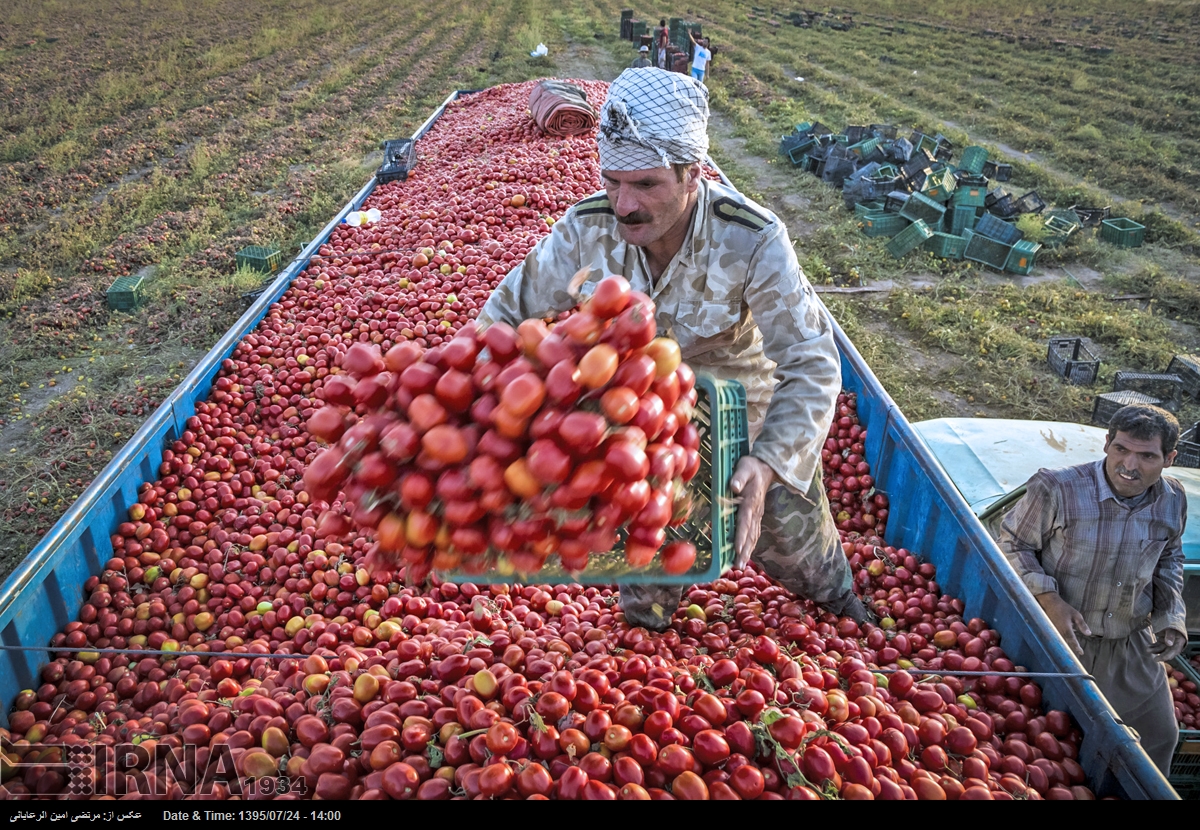
After the sharp devaluation of Rial after the return of the US sanctions on Iran, many Iranian goods, particularly food, become very cheap for the neighboring countries. Several buyers from Iraq, Azerbaijan, Afghanistan and other bordering countries rushed to the border markets to purchase such goods.
“In August and September 2018, the amount of tomatoes and potatoes exported to Iraq was 8 times than what was exported during the same period a year ago”, explains Hassan Foruzan-Fard, Board Member of Tehran Chamber of Commerce. “Farmers instead of selling their products to manufacturers, sold them at the border to get dollar. As a result, the tomato paste producers could not have enough supply. For instance, a company which needed 1000 tonnes of tomatoes, bought only 400 tonnes. This shortage in raw material, caused a shortage in production”.
To control the local market and keep the supply high, the government banned exporting tomato-paste. This restriction was criticized by food producers who had tried to build a brand in foreign markets.
Following new policies, this summer the prices in tomatoes fell considerably leaving farmers with huge deficits and loss. To stop this trend, the Ministry of Trade and Industry has ordered the Central Organization for Rural Cooperatives to buy tomatoes from the farmers a fixed price of 11,000 rials per kg.
The government is worried that if the farmers lose too much, they might not be interested in cultivating tomatoes for the next year which can lead to new shortages; experiences which has happened in Iran in the past years.
However, what consumers are complaining about is that, although prices for tomatoes have fallen, the price of tomato-paste, which is very much used in Iranian dishes has not decreased at all. The government has promised to interfere in this market as well.
